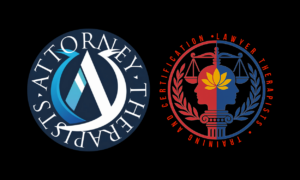Recent national surveys indicate a disturbing rise in self-reported depression across the United States, a trend particularly pronounced among professionals in high-demand occupations such as law. While numerous social, economic, and environmental explanations have been offered, this article contends that the rise in depression must also be understood as a reflection of an existential vacuum—what Viktor Frankl, founder of Logotherapy, described as the absence of meaning in one’s life.
This article explores the current mental health landscape in America through the lens of Frankl’s logotherapeutic principles and applies them specifically to the legal profession. It argues that practicing attorneys are uniquely vulnerable to depressive symptoms when their work lacks a sense of intrinsic meaning beyond status, financial reward, and institutional validation. Ultimately, the article outlines a framework for meaning-making within legal practice, grounded in introspection, detachment from socially conditioned success metrics, and purposeful professional identity formation.
Introduction
A 2024 report by the Centers for Disease Control and Prevention (CDC) found that rates of depression among U.S. adults reached their highest point in recorded history, with nearly 29% of adults reporting a diagnosis of depression at some point in their lives—a sharp increase from prior decades. Particularly concerning is the rise among young professionals and those in cognitively demanding fields, including medicine, finance, and law. Within the legal field, rates of depression, anxiety, and substance misuse have climbed despite growing awareness and institutional efforts aimed at wellness.
While traditional explanatory models emphasize neurochemical imbalances, work stress, and socioeconomic instability, they may fail to account for a more insidious source of psychological despair: the erosion of meaning in modern life. This article posits that logotherapy—Viktor Frankl’s existentially oriented form of psychotherapy—offers a compelling framework through which to understand and respond to the surge of depression, especially in legal practitioners whose professional ethos often rests on culturally inherited ideals of “success” that are devoid of intrinsic fulfillment.
Depression as a Symptom of the Existential Vacuum
Frankl’s seminal work Man’s Search for Meaning outlines the phenomenon of the “existential vacuum”—a condition in which individuals suffer from a lack of purpose, leading to boredom, apathy, and ultimately depression. In contrast to Freudian drives of pleasure or Adlerian drives of power, Frankl argued that the primary human motivation is the will to meaning. When this drive is frustrated or misdirected, a psychological malaise sets in, manifesting as neurosis, despair, or depression.
The modern American legal industry is uniquely vulnerable to this vacuum. Legal culture continues to emphasize prestige, competition, and compensation. These metrics, however, are inherently transient and external. When the legal professional’s life is organized solely around billable hours, partnership tracks, and elite credentials, an inner void remains untouched. Over time, this void becomes fertile ground for existential depression—distress borne not of failure, but of the painful realization that success, as defined by prevailing norms, feels hollow.
The Legal Profession and the Crisis of Meaning
A growing body of empirical research underscores the psychological strain among attorneys. A landmark 2016 study published in the Journal of Addiction Medicine found that 28% of licensed, employed lawyers suffered from depression, and 19% exhibited symptoms of anxiety. Subsequent surveys have indicated that these numbers have only grown in recent years. The correlation between these symptoms and the pursuit of prestige and wealth is not incidental but central.
Attorneys are trained from the outset to compete—for top grades, law review membership, clerkships, and offers from elite firms. This meritocratic pipeline leaves little room for reflection on why one is pursuing the legal path in the first place. As Frankl observed, “Ever more people today have the means to live, but no meaning to live for.” The legal profession, with all its intellectual rigor and societal power, has become an emblem of this paradox.
The Logotherapeutic Framework: Reclaiming Meaning in Legal Practice
Logotherapy encourages individuals to transcend their circumstances by identifying sources of meaning through:
Creative Work – contributing to the world through one’s profession or craft.
Experiential Values – encountering love, beauty, or truth.
Attitudinal Values – adopting meaningful perspectives toward suffering or limitation.
Applied to the legal profession, this framework invites attorneys to seek purpose in ways that go beyond compensation and status. For instance:
A public defender may derive meaning from advocating for the marginalized.
A corporate lawyer may find meaning in shaping ethical governance within institutions.
A family law attorney may find fulfillment in restoring dignity to clients amid personal upheaval.
Such meaning is not given; it must be discovered. This requires a practice of deep self-reflection and a willingness to question internalized definitions of success. Logotherapy does not ask what we expect from life, but what life expects from us. For lawyers, this shift can be transformative—inviting a reorientation toward vocation rather than occupation.
Detaching from Conditioned Notions of Success
Central to meaning discovery is the deconstruction of socially inherited metrics of worth. Lawyers are often conditioned—by elite institutions, familial expectations, or peer comparison—to equate achievement with prestige. Logotherapy challenges this: authentic meaning cannot be outsourced to rankings, titles, or wealth.
Frankl’s method includes the technique of paradoxical intention—inviting clients to confront fears or absurdities in order to loosen the grip of rigid thought. Similarly, lawyers can be invited to examine how their perfectionism or compulsive achievement-seeking may be defensive postures against a deeper absence of meaning. In letting go of these attachments, they may come to rediscover the original values that drew them to law: justice, service, or intellectual inquiry.
Institutional Implications and the Role of Legal Education
The implications of this existential approach extend beyond individual attorneys to the structures that shape the profession. Law schools and firms alike must move beyond wellness programming that offers surface-level interventions. What is needed is a cultural transformation that foregrounds meaning:
(1) Curricula should integrate discussions of purpose, moral philosophy, and professional identity.
(2) Firms should encourage mentorship models that prioritize fulfillment and personal growth over metrics alone.
(3) Continuing legal education (CLE) should include modules on meaning-making, values alignment, and psychological sustainability.
Such shifts would not merely reduce burnout—they would revitalize the profession with a renewed ethical and existential clarity.
Conclusion
The rise of depression in the United States, and particularly in the legal profession, must be understood not only as a clinical phenomenon but as an existential one. The law, once viewed as a noble pursuit of justice, risks devolving into a prestige economy that neglects the inner lives of its practitioners. Logotherapy offers a powerful antidote—reminding us that meaning, not success, is the foundation of human flourishing.
As Frankl wrote, “Those who have a ‘why’ to live can bear with almost any ‘how.’” The legal profession must help its members rediscover their why—not only for their own well-being, but for the integrity of the law itself.









